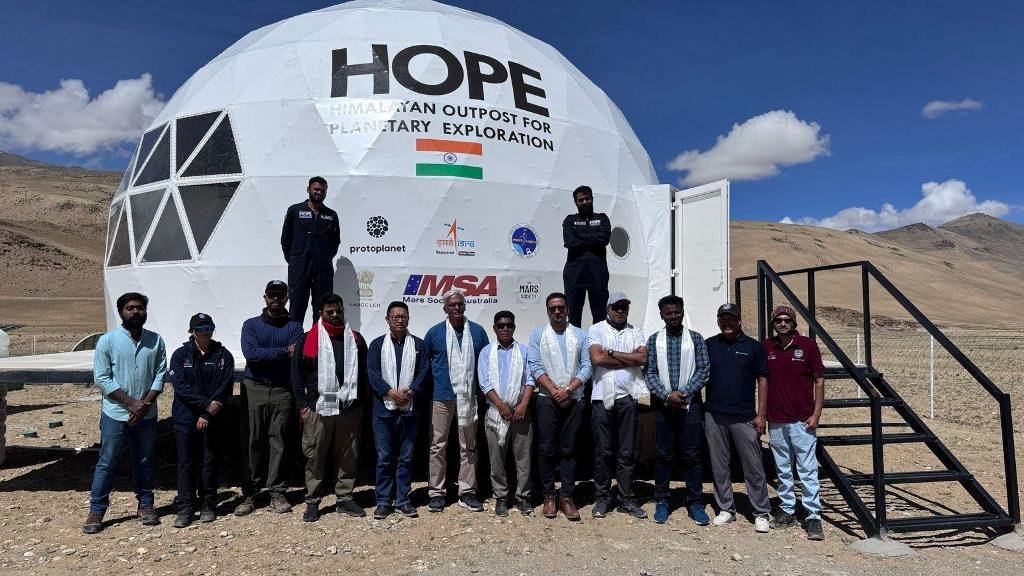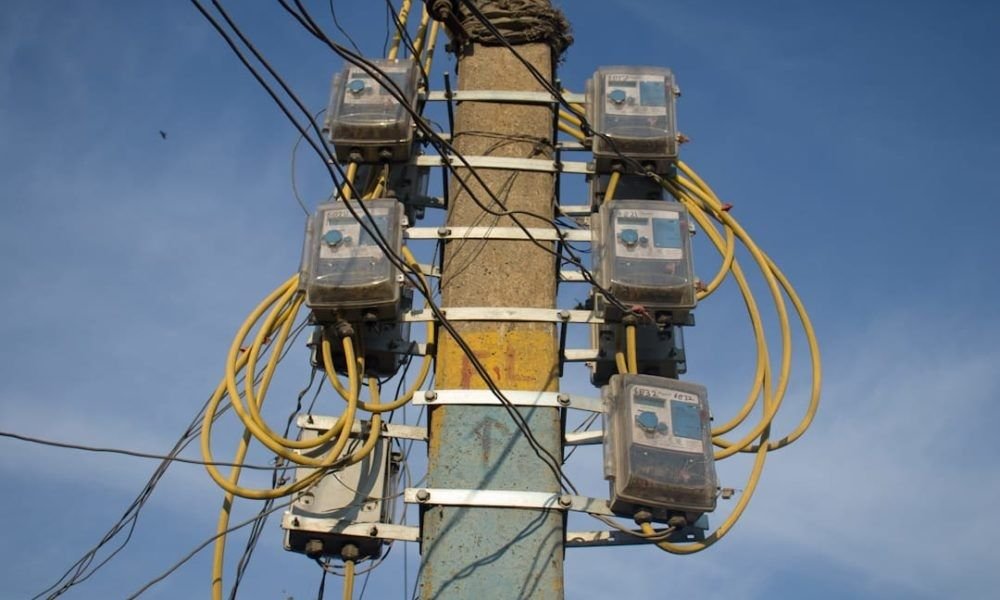India has achieved another landmark in its space journey as the nation’s first analogue astronauts successfully concluded the HOPE mission, stepping out of a 10-day isolation experiment designed to simulate deep-space conditions.
Situated at approximately 14,000 feet in Tso Kar Valley, Ladakh, the HOPE (Himalayan Outpost for Planetary Exploration) station comprises two interlinked modules:
- Habitat Module (Ø 8 m) – Living quarters replicating tight spatial confines.
- Utility Module (Ø 5 m) – Operational support systems including life support and communications.
These modules create a self-contained habitat that tests survival systems, resource management, and human physiology under simulated Martian and lunar geographies featuring extreme cold, low oxygen (≈40% of sea level), high UV exposure, and saline permafrost.
Rahul Mogallapally and Yaman Akot, the pioneering duo, emerged from the HOPE Analogue Station — a one-of-its-kind facility operated by Protoplanet in partnership with Mars Society Australia, The Mars Society, and the Indian Space Research Organisation (ISRO).
The conclusion ceremony was a proud moment for India’s space community. The astronauts were welcomed by Executive Councillor Stanzin Chosphel and Councillor Korzok Karma Namdak, who commended them for their groundbreaking achievement.
Also in attendance was a team of top scientists from ISRO’s Human Spaceflight Centre, who monitored the mission closely to evaluate its impact and gather critical research data.
Inside the 10-Day Space Simulation
The HOPE mission wasn’t just symbolic — it was a highly controlled experiment to replicate the challenges of long-duration space travel.
During their 10-day isolation:
- The astronauts lived in a confined, resource-limited environment to mimic spacecraft conditions.
- They underwent psychological resilience tests to assess mental endurance in prolonged isolation.
- They followed strict operational protocols similar to those in real space missions.
The study focused on human factors, crew dynamics, and technological readiness, all essential for missions like India’s upcoming Gaganyaan program and potential future planetary exploration.
Why This Mission Matters for India’s Space Future
Analogue astronaut training is a crucial step for every country aiming for manned space missions. The HOPE mission’s findings will help ISRO refine:
- Life support systems for spacecraft.
- Emergency response protocols in isolated environments.
- Psychological support strategies for astronauts.
Moreover, the experiment strengthens India’s participation in international space research collaborations, enhancing the country’s readiness for future Moon, Mars, and deep-space missions.
A Testament to Global Collaboration
The HOPE mission is not just India’s triumph — it’s a global scientific effort. Collaborations with Mars Society Australia and The Mars Society brought in global expertise, allowing Indian scientists to benefit from decades of space simulation research.
Such partnerships are vital for addressing challenges like radiation exposure, communication delays, and crew coordination in real planetary missions.
With Gaganyaan already in development, this mission is a stepping stone to putting Indian astronauts into space. The insights from HOPE will shape astronaut training modules, mission planning, and safety measures for upcoming human spaceflight programs.
The journey from simulated space environments to real interplanetary travel is long, but India has taken a confident stride forward.
As Rahul Mogallapally and Yaman Akot stepped out of the HOPE station, they didn’t just end a mission — they began a new chapter in India’s cosmic ambitions.
















